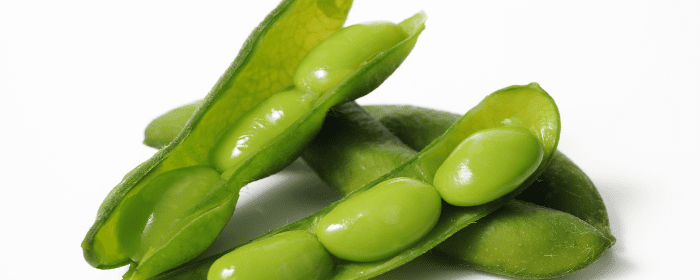
by admin | Jun 4, 2020 | Chronic Pain, Health Awareness
Chronic pain is a symptom of many conditions, including multiple sclerosis (MS), fibromyalgia, and arthritis, among others. It’s estimated that more than one-fifth of U.S. adults experience chronic pain, though that figure could be as high as 40%. Many forms of chronic pain continue to puzzle experts, and the symptom is often dealt with by prescribing prescription medications. Yet, because these drugs have side effects which can further diminish quality of life, many people with chronic pain look to holistic remedies to combat their discomfort. Here are a few options to consider.
1. Try acupuncture.
This ancient Chinese practice employs the use of thin needles strategically inserted at various meridians throughout the body to rebalance energy flow. Western medical experts believe the treatment may work to kickstart the body’s natural painkillers by stimulating specific tissue groups.
2. Go for physical therapy.
Physical therapists can teach you targeted exercises to control your pain or perform variations of movements that will make your day-to-day routine easier. You can then practice these exercises at home on your own time.
3. Practice yoga.
Gentle stretching may help alleviate tension in the muscles, and it can also help you develop a deep breathing regimen to deliver much-needed oxygen throughout the body.
4. Get ample sleep.
Poor sleep quality and insufficient sleep are both linked to pain. Sleep is an important indicator of overall health, so aiming for even just 30 minutes more per night could improve the way you feel. Keep your sleep environment cool, avoid any screens an hour before bed, and try to steer clear of caffeine later in the day.
5. Follow an anti-inflammatory diet.
Certain foods have been linked to inflammation, including heavily-processed foods. Eating plants like the Mediterranean diet have been touted by the likes of the Arthritis Foundation for reducing body-wide inflammation and thus controlling pain.
6. Release endorphins.
Endorphins are the body’s natural “feel-good” hormones which can help to curb discomfort. Get your release of them by trying low-impact exercises, such as swimming or cycling.
7. Apply heat.
Heat therapy is a popular option for dealing with chronic pain. Medicated patches, heating pads, and hot baths are a few options to try. You can also consider adding Epsom salts to your bath, which can further boost soothing potential.
8. Book a massage.
Nothing relieves sore muscles and releases tension like a massage. In particular, two to three 60-minute sessions per week have been found to alleviate chronic pain, which could be a result of massage’s ability to relax the body and addressing nerve fibers which are responsible for relaying pain messages.
9. Minimize stress.
The body/mind connection is indisputable. When you’re stressed, you’re more likely to hold tension in your muscles. Try to find healthy outlets for alleviating your stress, such as journaling, meditating, or seeing a mental health professional.
10. Try turmeric.
Turmeric extract has beneficial properties for minimizing pain caused by arthritis, and in some cases, it’s been shown to be as effective as ibuprofen for controlling joint inflammation. While it shouldn’t replace other therapies, it could be used alongside traditional treatments to further improve pain levels.

by Stemedix | Apr 6, 2020 | Stem Cell Therapy, Chronic Pain
One in five adults in the U.S. reports having chronic pain, which amounts to 50 million people. As one of the most common reasons people visit their doctors, this frustrating symptom is linked to issues like restricted daily activities, dependence on prescription medications, anxiety and depression, and overall reduced quality of life. It can stem from many causes, including chronic conditions and lingering effects of previous injuries, and often intensifies with advancing age. Some of the most common conditions linked to chronic pain include arthritis, lupus, and multiple sclerosis. Alternative Treatment for Chronic Pain: Stem Cell Therapy.
Traditional treatments for chronic pain include over-the-counter pain relievers or opioids, along with non-medication techniques such as physical therapy, acupuncture, and exercise. Unfortunately, many patients find that the side effects of long-term pain medication can further diminish their quality of life, and other treatments often fall short when it comes to providing relief. It’s therefore no surprise that many of these patients willingly embrace new treatments, such as stem cell therapy.
Stem Cell Therapy as an Alternative Treatment for Chronic Pain
Stem cell therapy is a new form of regenerative medicine which uses the body’s natural regenerative healing mechanisms, stem cells, to repair and renew damaged tissue. These cells have the ability to self-renew and differentiate into other cell types. They also have immune-modulatory and anti-inflammatory properties, which can help address the swelling and discomfort that arises in many chronic conditions and injuries. Research suggests that their ability to home in on affected sites makes them a powerful means of treating inflammatory pain and trauma.
In patients with chronic pain, stem cells can be injected at appropriate sites to rebuild and regenerate tissue, suppress inflammation, and reduce the severity of symptoms. The treatment has been used for neurodegenerative conditions such as Parkinson’s disease and multiple sclerosis, autoimmune disorders such as rheumatoid arthritis and lupus, and musculoskeletal injuries.
Although many chronic conditions still have no cure, stem cell therapy is a promising new alternative for treating them. It goes beyond simply masking symptoms to spur healing at a cellular level, thereby leading to stronger outcomes that can significantly improve the way of life for patients experiencing chronic pain. If stem cell therapy is something you are interested in then contact us today for a free consultation.

by admin | Feb 2, 2020 | Chronic Pain, Health Awareness
Whether it’s from arthritis, fibromyalgia, or another chronic condition, persistent pain is frustrating at best. There are many therapies available to help reduce discomfort, but one often overlooked lifestyle change is refining your diet. In particular, there are a few foods known for combatting inflammation, a key agent behind chronic pain. Try incorporating some of these foods and ingredients into your diet to see if it makes a difference with your pain levels. Here are some of the best foods to relieve chronic pain:
Soybeans
Soybeans have an anti-inflammatory
effect, which could be a result of their powerful, protective
phytoestrogens and omega-3 fatty acids. While soybeans are commonly found in
prepared products like tofu and soy milk, you can also enjoy them as a
protein-rich snack in the form of steamed edamame.
Fish
Experts have been touting the benefits of fish for decades
due to the food’s many health-boosting qualities. Cold-water fish, in
particular, is rich in omega-3 fatty acids, which can help to curb
inflammation. Reach for varieties like tuna or salmon for the greatest
benefits.
Cherries
Delicious tart cherries are convenient, low-calorie snacks
loaded with antioxidants. They’re also good sources of cyanidin, which has
anti-inflammatory effects even stronger than that of vitamin E. The compound is
known for reducing pain caused by arthritis and gout, in particular.
Turmeric
Turmeric’s most active compound, curcumin,
is a potent anti-inflammatory agent which is believed to help control the
symptoms of arthritis. It can also help to improve depression symptoms and even
aid in the prevention of cancer, Alzheimer’s
disease, and heart disease. Try the seasoning with your eggs, rice, or even
in a smoothie.
Foods with Vitamin D
Interestingly, vitamin D deficiencies are very
common among people with chronic pain. While experts are still unsure as to
whether a deficiency could exacerbate existing pain or actually cause it in the
first place, getting ample intake of this nutrient is clearly important for
keeping discomfort at bay. With your doctor’s approval, consider taking
supplements or getting vitamin D from sources such as fatty fish and egg yolks.
Just try to steer clear of cow’s milk, which has inflammatory properties that
may worsen pain.

by admin | Jan 10, 2020 | Chronic Pain, Mesenchymal Stem Cells, Stem Cell Research
Chronic pain, that is, pain lasting for more than 12 weeks, is extremely common. As many as 1 in 3 Americans struggle with chronic pain, making it perhaps the most common physical condition that afflicts humans. Chronic pain is a source of significant suffering; it makes daily tasks more difficult, limits people’s ability to do the things they enjoy, and greatly diminishes the quality of life.
Perhaps the most frustrating aspect of chronic pain is that
there are usually no good treatments. Because the pain is chronic, patients who
try to treat chronic pain with medications must take drugs every day.
Acetaminophen and non-steroidal anti-inflammatories (NSAIDs) like ibuprofen can
help take away some suffering, but they are usually only partially effective.
Opioids are stronger, of course, but have such a high risk of causing
dependence and addiction that few doctors will prescribe for chronic non-cancer
pain. Physical therapy helps some, but not most people. Surgery may be able to
treat people with certain types of chronic musculoskeletal
pain; however, orthopedic surgery is a major ordeal with no guarantees of
success. Consequently, most people with chronic pain are left with very few
treatment options.
Perhaps this lack of chronic pain treatment options is what
makes recent stem cell research in chronic pain treatment so exciting.
Researchers are learning that mesenchymal
stem cells appear to be able to treat people with chronic pain. For
example, in a study of patients with low back pain who received treatment autologous
stem cells (their own stem cell populations purified, expanded, and
re-injected in their bodies), their pain and disability
decreased to the same levels as people who underwent major orthopedic
surgery (spinal fusion or total disc replacement). Another lab in Japan showed similar results.
The same benefit may occur in knee arthritis (osteoarthritis),
as well. Researchers showed that autologous stem cells were able to increase
the size of the knee
meniscus cartilage in a patient with severe knee arthritis. It should be
noted that damaged knee meniscus cartilage is one of the main sources of
chronic pain in knee osteoarthritis.
Of course, the number of patients treated in these studies is relatively small. Larger studies will be required to confirm that mesenchymal stem cells can treat chronic pain. However, these results are intriguing, since a staggering number of studies show autologous stem cell treatment to be safe. Indeed, mesenchymal stem cell treatment is now widely available in clinics and medical practices.
Reference: Waterman R. et al. (2011). Treating Chronic Pain with Mesenchymal Stem Cells: A Therapeutic Approach Worthy of Continued Investigation. Journal of Stem Cell Research & Therapy. 2011, S2 DOI: 10.4172/2157-7633.S2-001.

by admin | Nov 21, 2019 | Chronic Pain, Mesenchymal Stem Cells, Stem Cell Research, Stem Cell Therapy
A review in the Journal of Stem Cell Research & Therapy has summarized an array of studies that demonstrate that a specific type of stem cell – the mesenchymal stem cell – may be beneficial as a therapeutic approach to chronic pain. The authors point to the huge burden of chronic pain. It is estimated that more than 115 people suffer from the condition, which is more than those who suffer from diabetes, stroke, cancer, and coronary heart disease combined. Many medical professionals are pondering the question of how stem cells may help those with chronic pain.
Chronic pain is also associated with significant losses in productivity. Given how extreme the burden of chronic pain has become, the National Institute of Medicine has suggested that finding effective ways to alleviate chronic pain should become a priority for the nation.
Regenerative medicine has offered an effective way to treat a variety of injuries and diseases, including some that are related to chronic pain. As the term “regenerative medicine” implies, much of the research into the clinical effects of stem cells have shown that they lead to beneficial outcomes by regenerating damaged tissue by replacing that tissue with new cells.
This new review looks at the potential of mesenchymal stem cells to specifically improve chronic pain through the ability of the cells to suppress inflammation. Given that inflammation is a common characteristic of conditions associated with chronic pain, a strategy that addresses this phenomenon could represent an effective way to help those with chronic pain that comes from things like degenerative disc disease and osteoarthritis.
The current approaches to chronic pain are limited in their ability to reduce or control pain, so there is a great need to develop more effective therapies. Research thus far into the potential impact of mesenchymal stem cells on chronic pain has provided promising results regarding effectiveness and safety. Specifically, these stem cells have not been associated with adverse side effects, they lead to the development and growth of healthy tissue, and they appear to provide pain relief. Future research will help to clarify the mechanisms by which mesenchymal stem cells may confer their benefits to those with chronic pain and provide new insights into how can best use these cells to help chronic pain sufferers.
Reference: Waterman, R.S. & Betancourt, A.M. (2011). Treating chronic pain with mesenchymal stem cells: A therapeutic approach worthy of continued investigation. Journal of Stem Cell Research & Therapy, S2, 1-5.






 St. Petersburg, Florida
St. Petersburg, Florida
